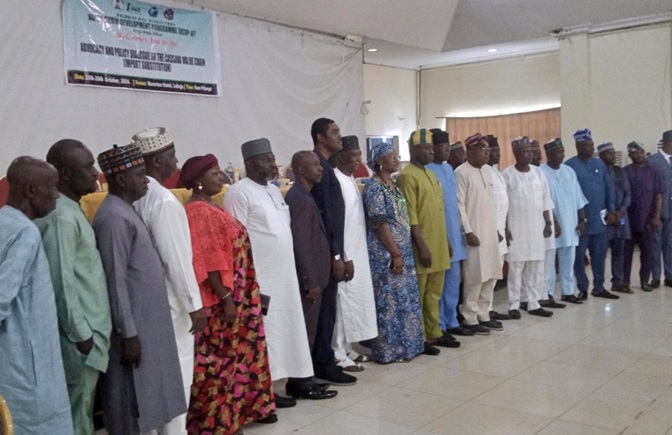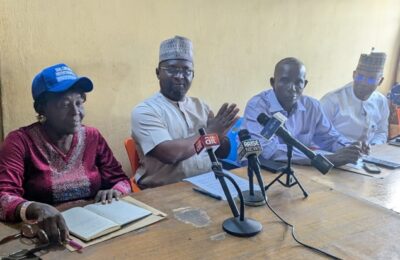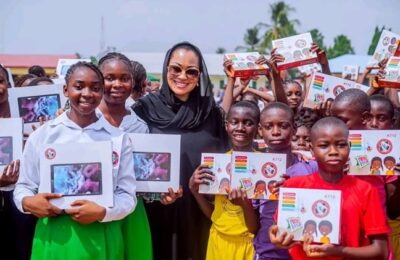By Stephen Adeleye.
The Kogi State Government has promised continued support for the Value Chain Development Programme (VCDP) towards enhancing Cassava production and processing for sustainable agricultural transformation in the state.
The Speaker Kogi State House of Assembly, Rt. Hon. Aliyu Umar Yusuf, gave the assurance during an Advocacy and Policy Dialogue on Cassava Value Chain (Import Substitution), organised by FGN/IFAD-VCDP on Friday in Lokoja.
Yusuf, who was represented by member representing Ogori-mangongo constituency, Hon. Bode Ogunmola, emphasised the role of the state Assembly in law making and promised people-oriented legislation.
He appealed to the VCDP management to be on the same page with the Assembly to enable it enact law that would promote a smooth running of agricultural activities and development in the state.
The speaker reiterated the commitment of Gov. Ahmed Ododo to boosting agricultural productivity in the state.
He urged the management of Kogi VCDP to ensure that the targeted farmers are well captured to complement the state government’s efforts in its agricultural revolution.
In his remarks, the State Commissioner of Agriculture and Food Security, Hon. Timothy Ojoma, commended the State Programme Coordinator (SPC), Dr Stella Adejoh, for her effort in ensuring the promotion of agricultural projects in the state.
Ojomah stressed that the state government’s to the VCDP underscored the importance Governor Ahmed Usman Ododo places on agricultural development in Kogi.
He noted that the State Government had empowered over 1,200 cassava farmers in its intervention this year, including; tractorization, imput provision and some extension services to farmers in the state.
“Kogi has maintain its position as the number one cassava producer in Nigeria, and we will continue to support the VCDP in cassava production and processing by ensuring continuous payment of its counterpart fund.
“So, I want to sincerely appreciate the state project coordinator for this initiative in supporting cassava protection and processing”, he said.
The commissioner advised the beneficiaries to make judicious use of every opportunity given to them to enable the State Government, Federal Government, International Fund for Agricultural Development (FGN/IFAD) achieve its set objectives in agricultural development in the state and the country at large.
The National Programme Coordinator of IFAD-VCDP, Dr Fatima Aliyu, commended Kogi Government for its unwavering support for VCDP especially the counterpart funding which has ensured the realization of the projects in the state.

Aliyu, who was represented by Agama Okoh, noted that Kogi standout in its performance and supports to VCDP among other participating states.
She emphasised that Kogi has set a pace and assured of harmonizing every available resources to grow the cassava value chain in the state and Nigeria as a whole.
Earlier, the State Programme Coordinator, Dr Stella Adejoh, said the essence of Advocacy and Policy Dialogue on the Cassava Value Chain was to draw government attention into farming to increase production in the state.
Dr Adejoh added that it would also improve income generation for small farmer holders, and livelihood of timid population, as well as bring about economic growth for Kogi State and Nigeria at large.
She explained that the VCDP is intervening in five participating Local Government Area including; Lokoja, Ajaokuta, Ibaji, Kabba Bunu and Olamaboro.
She stressed that VCDP is supporting farmers who engaged in production, processing and marketing of rice and cassava to increase productivity across cassava value chain.
Dr Adejoh maintained that VCDP is supports farmers’ group by providing them with imputs and teaching them good Agronomic practices that will help to increase their productivity.
“VCDP is providing support to farmers’ group, women, youths and people living with disabilities who are interested in engaging in production, processing and marketing of rice and cassava.
She noted that so far in Kogi State, between January 2021 and July 2024, VCDP has been able to support 4,229 farmers.
“This Advocacy and Policy dialogue is very important as Government policies can make or mar agricultural value chain development.
“A country’s agricultural policy has a strong influence on agricultural value chain development for smallholder farmers for example the high importation of starch by the breweries affects cassava farmers negatively.
“Concerted efforts are required to effectively position Nigerian cassava in regional and international markets to ensure sustainable development of the sector.
“To ensure improvements in the production, processing, and marketing of cassava without negatively impacting on the food security of the country.
“These efforts will equally lead to increasing the contribution of cassava to economic transformation through key stakeholders’ involvement and building an agribusiness economy capable of delivering sustained prosperity for food security, exports promotion and sustainable income and job growth,” she said.
She stressed the need for supportive policy and institutional reforms for the development of the Nigerian cassava sector, and Intentional land development for cassava production.
She added: “Improved access to mechanization and subsidized inputs by smallholder farmers, Identifying and developing new market opportunities for import substitution and export.
“Stimulating increased private sector investment in the establishment of export-oriented cassava industries, and ensuring the consistent production and supply of fresh cassava roots with high starch content to end user industries, among others.
“We will not relent on our zeal to achieve the needed results and make life worth living for our smallholder farmers”.
Some of the participants, Umoru Tijani Ahmed and Rachael Akande, both described the VCDP as impactful, saying it had enlightened them of great opportunities embedded in cassava farming.
They promised to put the knowledge gained into practice and called on people of the state especially unemployed youths to key into cassava farming for self-reliance.
Stakeholders at the event include policy makers including the speaker of Kogi State House of Assembly and other Assembly members, Commissioners, Local Government Chairman, political appointees, stakeholders from private sectors, farmers among others.
The dialogue was centered on how to reduce the challenges facing and increase cassava production to bring about economic growth in the State and the country at large.




